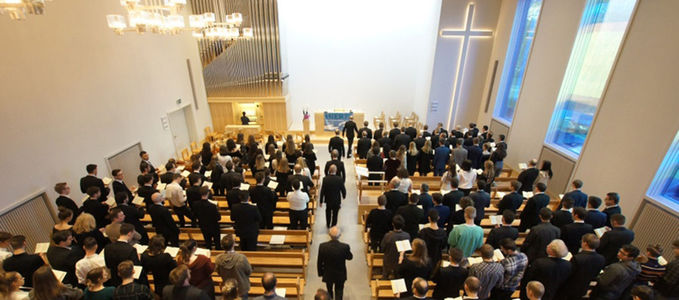
Areas of responsibility, language barriers, and distances … faith and fellowship are capable of breaking down all these barriers. Here are some examples—like the story about a call for help from a hospital.
A sister from South Africa asked for a pastoral visit over the Internet—and not only for herself. She was hospitalised for several weeks and because she was not familiar with the area, she used Facebook Messenger to keep in touch with her church. After a detour of 19,000 kilometres, her request landed on the right screen.
It was the social media team of the New Apostolic Church International—based in Germany—that forwarded the request still that same night to the responsible Church office in Cape Town. They informed the Apostle the following morning, and he posted shortly thereafter: “A Priest is on his way.” And he not only visited the lady who had posted the original message, but also two sisters in faith whom she had met in hospital.
Portuguese services in Luxembourg
The New Apostolic Church in Luxembourg has a new pastoral offer: since the beginning of the year it is offering divine services in Portuguese. Although Portuguese is not one of the three official languages of the Grand Duchy, about 16 per cent of the total population of the small country are Portuguese. They are by far the biggest immigrant group. They came to Luxembourg in the 1960s to work there. The first divine service in Portuguese took place at the end of January in Differdange. It was conducted by a Priest from Belgium, who had come especially for this purpose.
The French-speaking youth prepare for the IYC
Young people from the districts of Algrange-Metz, Merlebach, and Wallonia came together in mid January to spend the day together. What was so special about is that two of the districts are located in France and the third, Wallonia, in Belgium. Apostle Jeannot Leibfried was joined by Bishop Pascal Strobel, who also cares for the congregations in Belgium and Luxembourg. The young people rehearsed their contribution for the International Youth Convention 2019.
A virtual youth meeting
Preparation for the IYD 2019 was also on the agenda of a youth gathering in Switzerland. Winterthur was one of four locations that participated in a youth service. The service was followed by a workshop to prepare for the International Youth Convention. The young people in Zofingen, St. Gallen, and Langnau i.E. also showed their creative potential in implementing the IYC motto “Here I AM”. Thanks to Skype, the four groups were able to see each other and toss ideas back and forth. Their virtual meeting ended with a common prayer.




























